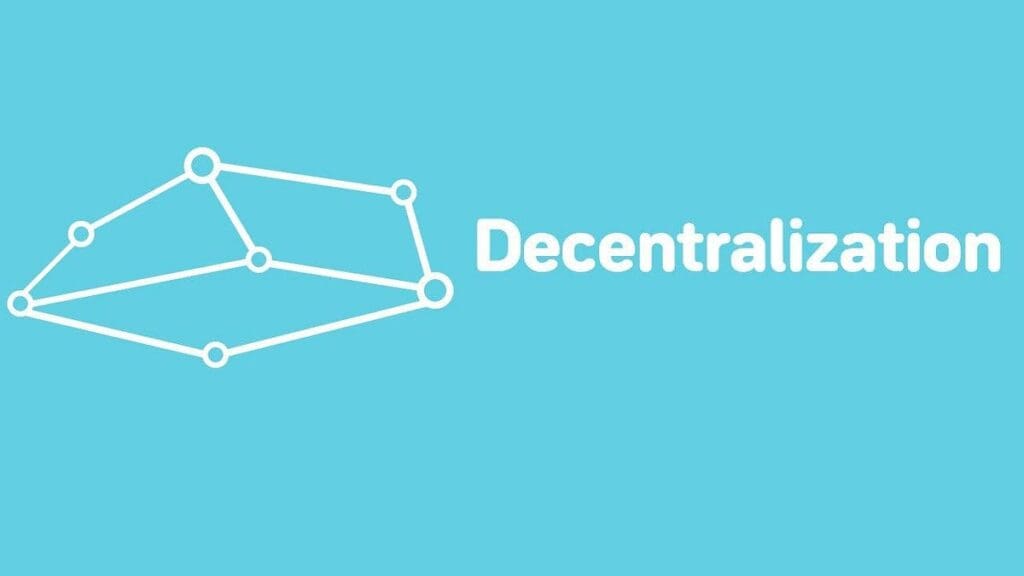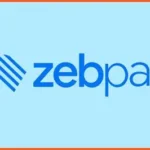In this article, I will discuss the Benefits Of Staking Polygons, which allows MATIC token holders to engage in securing the network while also earning rewards.
Staking Polygon boasts several advantages including increased network security, lower transaction costs, liquidity, and great prospects as a long term investment. In looking at these benefits, investors can see why staking Polygon is highly appealing.
Key Point & Benefits Of Staking Polygons List
| Key Point | Description |
|---|---|
| Earn Rewards | Users can earn rewards through staking or participation in the network. |
| Network Security | Robust security protocols to protect the network from threats. |
| Low Energy Consumption | Efficient usage of energy in the network operations, promoting sustainability. |
| Decentralization | The network is decentralized, ensuring no single point of control. |
| Support for dApps | Enables decentralized applications to run seamlessly on the platform. |
| Liquidity | High liquidity for assets, ensuring smooth transactions and exchanges. |
| Reduced Transaction Fees | Lower transaction costs, making it more cost-effective for users. |
| Community Engagement | Active involvement of users and stakeholders in decision-making and network growth. |
| Long-Term Investment | Strong potential for long-term value appreciation and investment growth. |
| Governance Participation | Allows users to take part in governance decisions, shaping the future of the network. |
1.Earn Rewards
Staking Polygon comes with the advantage of being rewarded for participating in the validation of the network.
Staking MATIC tokens helps you secure the network, and you earn rewards in the form of a share in the transaction fees.

This enables the users to earn passive income while also promoting the stability of the platform.
The Polygon platform has a highly productive proof-of-stake model which makes it very energy efficient while also being highly scalable. Thus, staking Polygon is ideal for long-term investments.
| Aspect | Details |
|---|---|
| Reward Type | Earn staking rewards in the form of MATIC tokens. |
| KYC Requirement | Minimal KYC, typically only basic identity verification is needed. |
| Reward Frequency | Rewards are distributed periodically (e.g., weekly or monthly). |
| Staking Mechanism | Rewards earned by participating in the proof-of-stake (PoS) consensus. |
| Earning Potential | Returns vary based on staking amount and network conditions. |
| Staking Duration | Flexible; users can stake for short or long terms depending on their goals. |
| Security | Staking helps secure the Polygon network, benefiting the broader ecosystem. |
2.Network Security
Staking Polygon increases security by allowing token holders to participate in the validating process.
Users who stake MATIC tokens aid in network security through a decentralized approach.

This form of validation increases the protection against centralization or attacks, which in turn protects the integrity of transactions. Users who engage in staking earn rewards but also participate greatly in keeping Polygon’s security and the reliability of the network healthy.
| Aspect | Details |
|---|---|
| Security Mechanism | Stakers contribute to securing the network through the PoS consensus model. |
| Minimal KYC | Only basic identity verification is required for participation. |
| Impact on Security | Increases network resilience by decentralizing validation and reducing risk. |
| Reward for Security | Stakers earn rewards for helping maintain security and network integrity. |
| Validator Role | Stakers act as validators, ensuring transaction verification and security. |
| Network Trust | Enhanced trust due to decentralized security contributions from multiple users. |
3.Low Energy Consumption
Because Polygon operates through a proof-of-stake (PoS) consensus mechanism, staking Polygon consumes less energy.
Unlike regular proof-of-work systems that demand a lot of computational power, Polygon’s PoS system is much more energy efficient.

MATIC tokens are an eco-friendly investment option. This method of staking MATIC tokens offers considerable profits while supporting sustainable practices geared towards the long term development of the network and reduction in blockchain’s environmental impact.
| Aspect | Details |
|---|---|
| Energy Efficiency | Polygon uses a Proof-of-Stake (PoS) model, which is energy-efficient. |
| Minimal KYC | Basic KYC is required to participate, with no extensive identity checks. |
| Environmental Impact | Lower energy usage compared to traditional Proof-of-Work systems. |
| Sustainability | Staking supports eco-friendly practices while securing the network. |
| Validator Energy | Validators consume minimal energy while performing consensus tasks. |
| Staking Benefits | Rewards are earned without contributing significantly to carbon emissions. |
4.Decentralization
Staking Polygon is beneficial for promoting decentralization as everyone can participate in the validation process.
Instead of a few centralized entities being in charge, community members who stake MATIC tokens are able to play a bigger role in distributing decision-making power.

The security, transparency, and resilience Polygon’s network has earns it more trust, making it a more democratic network. With this in mind, Polygons staking options help support the core values of decentralization in blockchain technology.
| Aspect | Details |
|---|---|
| Decentralization | Staking helps distribute network control across a large number of participants. |
| Minimal KYC | Basic KYC is required, allowing broad participation without complex checks. |
| Validator Role | Stakers act as validators, decentralizing decision-making and transaction validation. |
| Network Integrity | The decentralized nature strengthens security and transparency. |
| Staking Influence | Participants have voting power, further promoting a decentralized governance model. |
| Community Impact | Staking fosters community involvement, ensuring decisions are made collectively. |
5.Support for dApps
Staking supports the growth and efficiency of dApps as it secures the network while offering fast low-cost transactions.
The staked MATIC tokens help in ensuring the smooth scalability and performance of the Polygon Network, making certain that all dApps are able to operate without any congestion.

This better puts forth an environment in which developers are able to create and deploy new solutions, while the users are able to effortlessly interact with the dApps, thus increasing adoption as well as ecosystem growth.
| Aspect | Details |
|---|---|
| dApp Support | Polygon provides a scalable and efficient platform for dApps. |
| Minimal KYC | Basic KYC is required to stake, enabling easy participation in dApp ecosystem. |
| Scalability | Staking helps improve Polygon’s scalability, ensuring smooth dApp performance. |
| Low Transaction Fees | Stakers benefit from reduced fees, encouraging dApp usage and adoption. |
| dApp Ecosystem Growth | Staking supports the growth of decentralized applications on Polygon. |
| Network Performance | Staking enhances network stability, directly benefiting dApp users. |
6.Liquidity
Staking Polygon helps improve liquidity because it motivates token holders to lock up MATIC in return for rewards.
This helps to decrease circulating supply which stabilizes the market and increases the value of remaining tokens.

Such liquidity benefits also reach other parts of the ecosystem since the mechanism behind staking allows for more trades and faster transactions. Stakers help create and maintain a robust, liquid market that enables healthy price discovery, builds platform stability, and fosters healthy prices.
| Aspect | Details |
|---|---|
| Liquidity Enhancement | Staking reduces circulating supply, increasing token scarcity and liquidity. |
| Minimal KYC | Basic KYC is required, making it accessible for a wide range of participants. |
| Market Stability | Staking helps stabilize token prices by reducing volatility and supporting liquidity pools. |
| Reward Distribution | Liquidity from staking pools provides consistent rewards for participants. |
| Fast Transactions | Increased liquidity supports faster and smoother transactions on the network. |
7.Reduced Transaction Fees
Staking polygon reduces transaction costs by optimizing the economy and the network. Increased Staking MATIC tokens provides faster transactions processing while reducing bottlenecks which lowers overall costs.

These reductions in costs are highly beneficial to users as it lowers the cost of transactions on decentralized exchanges and dApps. Stakers also assist in making sure the overall network performance is maintained that allows low fees to be sustained across the platform.
| Aspect | Details |
|---|---|
| Transaction Fees | Staking Polygon helps reduce network transaction fees for users. |
| Minimal KYC | Basic KYC is required to participate, allowing easy access to fee reductions. |
| Network Efficiency | Staking improves network performance, leading to lower transaction costs. |
| Cost Savings | Stakers benefit from significantly lower fees compared to other platforms. |
| Faster Transactions | Reduced fees promote quicker and more affordable transactions on the network. |
8.Community Engagement
Polygon has stake mechanisms which empowers token holders to actively participate in the governance of the Network.
Token holders who become stakers can vote on key proposals, making decisions on how the platform is developed in the future.

This pro-active participation fosters a feeling of ownership and obligation which further binds the community.
Users help secure and grow the Network by staking and in return, they form an environment that promotes innovation and sustained success for the Network.
| Aspect | Details |
|---|---|
| Community Involvement | Staking allows users to actively participate in the network’s growth. |
| Minimal KYC | Basic KYC is required, ensuring broad and easy access for community members. |
| Governance Participation | Stakers can vote on key proposals, influencing the direction of the network. |
| Collaboration | Staking fosters a collaborative environment between users and validators. |
| Ecosystem Growth | Community engagement through staking drives network adoption and development. |
9.Long-Term Investment
Staking polygon offers a great investment opportunity as it provides rewards over a long period of time by tapping into the growth of the network’s tokens. MATIC tokens are staked, meaning they are locked for a set period of time. Staked tokens receive additional rewards which increases their overall worth.

Additionally, Polygon’s expanding utilization guarantees that staking will help enhance long-term value of the assets.
This makes it a viable strategy for long-term investors. Investors aren’t the only ones who benefit from such an approach; platform security for staking helps scale the network.
| Aspect | Details |
|---|---|
| Long-Term Returns | Staking provides consistent rewards, promoting long-term wealth accumulation. |
| Minimal KYC | Basic KYC required, making it easy for individuals to participate in long-term investments. |
| Network Growth | Staking supports Polygon’s scalability and adoption, benefiting long-term investors. |
| Stable Asset | MATIC tokens staked contribute to network security, making them a stable investment. |
| Reward Accumulation | Stakers benefit from compounded rewards over time, increasing investment value. |
10.Governance Participation
Polygon enables governance participation allowing the holders of tokens to influence the direction of the network.
Users who stake MATIC tokens are empowered to vote on significant proposals like upgrades or changes to the protocols.

This form of governance ensures that the decisions are made by the community, further enhancing the trust and inclusivity of the protocol.
The leaders of the community, the stakers, constantly decide on the evolvement of the platform, thus making the development of the network favorable to the users.
| Aspect | Details |
|---|---|
| Governance Power | Stakers gain voting rights to influence network decisions and upgrades. |
| Minimal KYC | Basic KYC required, making it accessible for a wide range of participants. |
| Proposal Voting | Stakers can vote on proposals, helping shape the future of the Polygon network. |
| Decentralized Decision-Making | Governance is decentralized, ensuring decisions reflect community interests. |
| Active Involvement | Stakers have a direct role in the platform’s development and policies. |
Conclusion
In summary, staking Polygon comes with a lot of perks and yields returns for both investors and the network as a whole.
Staking contributes to the security of the network, helps in the decentralization of the system, minimizes costs on transactions and also encourages liquidity and proper dApp management.
Also, staking enables an investor to earn rewards while actively participating in the community and governance of the Polygon ecosystem.
Staking also helps to increase returns on investment over time, reduces wasteful use of energy, and helps to improve the overall performance of Polygon.










